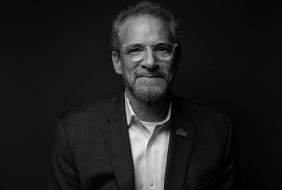In our post-Ferguson world, it’s easy to focus on the negatives within many local communities. And more often than not, we assign the blame to our local governments and the fragmented nature of our many local municipalities.
It’s only natural. The seemingly ridiculous nature of our political jurisdictions is a long-running, self-critical local narrative. On first blush, our many city aldermanic wards, county municipalities, school districts, and other bodies makes our region look like a disconnected mess.
But the idea that consolidation is the answer to all our local problems is misguided. While not necessarily a bad thing, consolidation alone can’t fix the larger issues of weak public schools, stagnant housing markets, pockets of great poverty, and lack of economic development.
At Beyond Housing, our 24:1 Initiative is taking a more incremental approach with the twenty-four municipalities within the Normandy school district — an approach that’s supported by Civic Progress, the Regional Business Council, and national thought leaders.
As David Rusk from the D.C. Policy Center recently told a local audience, St. Louis needs to foster and create “Communities of Common Interest” (CCI). The concept of CCI isn’t about reducing the number of municipalities. It’s about helping municipalities partner together to improve the level of services each city provides, and create better opportunity for future growth.
This is what we’re already doing in 24:1. Back in 2010, we began a program that gives the municipalities in the 24:1 the opportunity to buy into shared services such as trash collection, tree trimming, and demolition. These new partnerships helped facilitate the creation of two central court hubs that serve 13 different municipalities. In addition, 11 municipalities were able to disband their police departments by partnering with two central departments.
Partnering in these services has helped those participating to increase the efficiency of their resources, as well as their negotiating power with outside vendors for services like trash collection, which is each city’s second biggest expense.
It’s been a great success. So much so, that we’re now working with the mayors in the 24:1 on formalizing our own version of CCI — the Municipal Service District, which will allow these municipalities to partner on a whole new level.
It’s easy to blame local government for all of the problems in their community. But it’s not always fair or accurate. In our experience, the vast majority of individuals within these governments are smart, passionate, hard-working people who became involved purely out of a desire to improve their local communities, and the lives of their fellow citizens. Which is a great thing. We believe that having people involved in their local government is important, because it gives citizens a voice of self-determination in their own community.
If anything, the main issue we see in local governments is a shortage in staff and resources. We work as de facto adjunct staff in these communities, helping the people in local governments make the most of their efforts by providing a better framework for success, establishing municipal best practices, and setting a standard of accountability. We help support them and facilitate conversations on a wide range of tasks, including creating public works analysis, determining the scope and scale of vacant units, and working with the St. Louis County government to receive money for demolitions.
Establishing trust is a major part of working together. Getting mayors to trust in us and each other is a large part of our work. It doesn’t happen overnight. It’s something that’s earned over time, by delivering on our common goals and interests.
It’s important to realize that getting everyone to work together won’t fix every problem within these communities. Improving local government is just one piece of the puzzle, but it’s an important first step. When cities don’t have to worry about providing basic high-quality services to their residents, it frees up time and resources to focus on the tougher issues like quality education, affordable housing, and economic development.
So far, our approach is proving that small and separate doesn’t have to equal terrible and inefficient. And that there’s a lot of virtues to our idiosyncratic system. After all, the system in place today wasn’t created to make life difficult. It was created with the best intentions — creating smaller towns designed to bring citizens and their local government closer together.
Imagine what would happen if we stopped bashing the current system, and began celebrating as well as supporting the possibilities of local collaboration. Instead of trying to eliminate what makes our region so unique, imagine if we embraced the idea of separate municipalities united by common interests, working together for the benefit of all.


